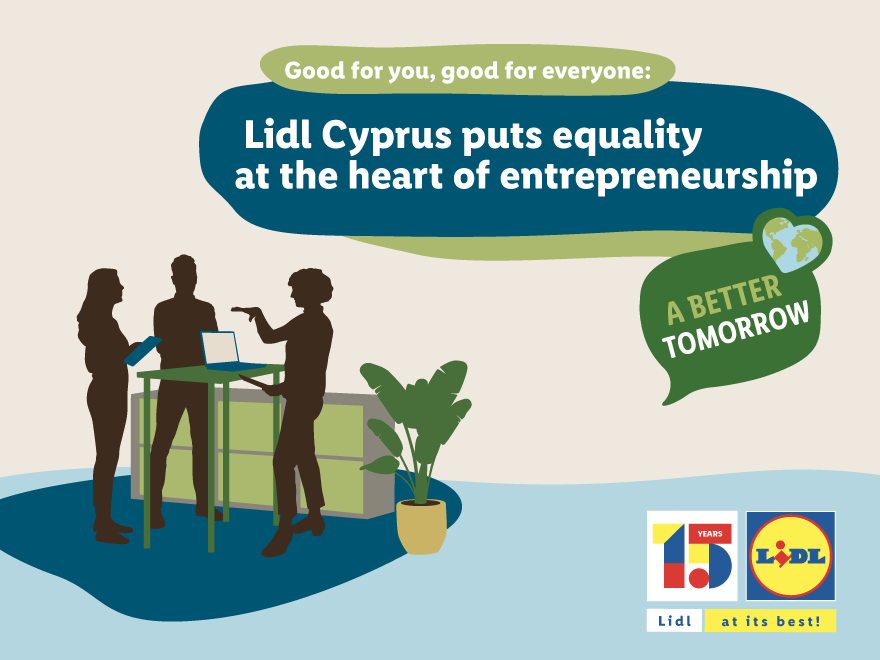Lidl Cyprus is reducing plastic footprint with strategies that offer real solutions
Microplastics are everywhere: in our seas, in the air we breathe, and even in the food we consume. Although they are nearly invisible to the naked eye, their impact on the environment, health, and biodiversity is disproportionately large. In Cyprus, a country that relies heavily on its marine ecosystem and tourism, the need to reduce plastic pollution is not merely a choice, but an urgent necessity.
In the face of this global challenge, Lidl Cyprus chooses to act, implementing a targeted plastic reduction strategy as part of the broader environmental policy of the Schwarz Group, to which it belongs.
REset Plastic: A Globally Recognized Strategy
Lidl Cyprus is implementing the ambitious REset Plastic program, which is applied across all Schwarz Group countries. This is a comprehensive plastic management strategy aimed at reducing, reusing, and recycling plastic, driven by a shared vision: a world with less plastic and more responsibility.
The REset Plastic strategy is built on five pillars:
- REduce – reducing plastic at all stages.
- REdesign – redesigning products and packaging.
- REcycle – promoting recycling and the circular economy.
- REmove – removing plastic waste from the environment.
- REsearch – investing in research and innovation.
With the first goal already achieved—ensuring that 100% of Lidl’s private-label plastic packaging is recyclable—the company is now focused on the next: by 2027, at least 25% of its packaging will contain recycled materials.
Practices That Make a Difference
The implementation of REset Plastic is already transforming the daily lives of consumers in Cyprus. From the gradual elimination of unnecessary plastic packaging to the provision of eco-friendly alternatives, Lidl Cyprus is applying concrete policies with real environmental impact.
Equally important are the awareness initiatives undertaken by Lidl Cyprus, educating the public on environmental responsibility and proper recycling practices. In collaboration with environmental and educational organizations, the company actively participates in coastal cleanup and waste collection programs, reinforcing the philosophy of the circular economy and emphasizing the importance of prevention.
Notable examples include the “mind REset” educational environmental program, implemented in partnership with Junior Achievement Cyprus, and “Project Zero” in collaboration with the AKTI Project and Research Centre, through which thousands of students across Cyprus are educated on environmental protection and reducing plastic pollution.
Through these local initiatives, Lidl Cyprus demonstrates that environmental protection is not just a corporate responsibility, but a shared commitment that demands transparency, coordination, and consistency.
More Than a Strategy – A Promise for the Future
Microplastics are a silent threat, but businesses like Lidl Cyprus refuse to stay silent. By adopting the REset Plastic strategy and continually seeking innovative solutions, the company proves that sustainable development and business success can go hand in hand.
Tackling microplastics is not an unsolvable problem but a challenge that can be met when everyone—from consumers to producers—chooses to act responsibly.
Since the beginning of its 15-year journey in Cyprus, Lidl Cyprus has remained committed to this cause, investing in a better future for the next generation; one where our beaches, food, and everyday lives are no longer filled with plastic particles, but with hope.






Click here to change your cookie preferences